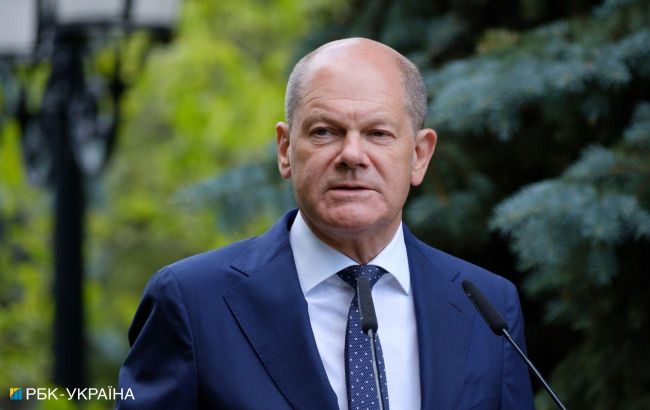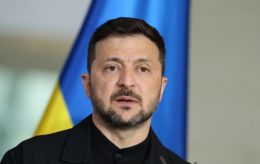Germany's coalition breakdown: analyst assesses threat to Ukraine aid packages
 German Chancellor Olaf Scholz (Photo: RBC-Ukraine, Vitalii Nosach)
German Chancellor Olaf Scholz (Photo: RBC-Ukraine, Vitalii Nosach)
Germany is one of Ukraine’s key partners, regularly providing new aid packages. However, the political crisis in Germany is sparking concerns about a potential halt in this support, according to the RBC-Ukraine article "Scholz against all: Why Germany to hold early elections and what Ukraine should expect."
Viktor Savinok, a political analyst and senior analyst at the Zygmunt Wojciechowski Western Institute in Poznan (Poland), noted that deliveries will continue in 2025, as long-term contracts and agreements are in place.
In his view, the German government will find it challenging to respond to urgent requests due to the crisis and the election period.
“The problem is that it will be difficult for the government to respond to urgent measures. We have already seen how the increase in aid by 400 euros for additional air defense systems was passed with a squeak in September. The coalition agreed to it after the case was finally exposed in the press. And now it will simply be harder to respond to urgent requests,” the political analyst believes.
Reuters emphasizes that even if the 2025 budget is not adopted on time due to the coalition collapse, Germany should still be able to provide most of the pledged 4 billion euros.
It remains challenging to predict whether the next coalition will be more resolute in supporting Ukraine, particularly regarding new weaponry. For now, Germany is entering a period of uncertainty, making it difficult to forecast the outcome of the elections.
Political crisis in Germany
On November 6, German Chancellor Olaf Scholz dismissed Finance Minister Christian Lindner. The chancellor explained his decision by saying the minister “too often breached his trust.”
Amid this development, Germany’s ruling coalition collapsed, as the Free Democratic Party, of which Lindner was a representative, left the coalition.
Early next year, Scholz will ask the Bundestag for a vote of confidence. It is highly likely that he will fail to secure enough votes, leading to elections in Germany.
One of the factors in the coalition’s breakup was the issue of aid to Ukraine. According to media reports, Scholz wanted to increase the support package by 3 billion euros and fund it by suspending the “debt brake.” However, Lindner opposed this. The former finance minister proposed providing Ukraine with Taurus cruise missiles, but Scholz rejected the idea.

